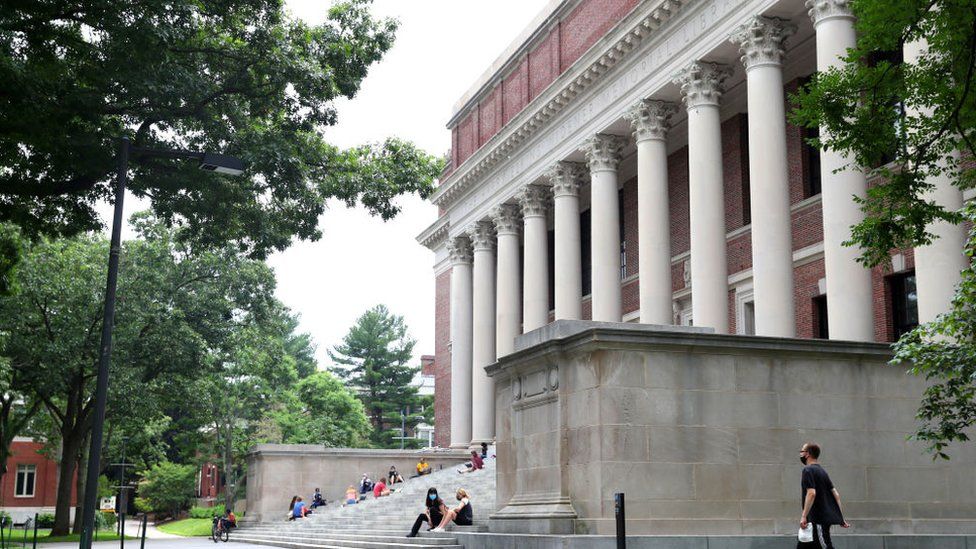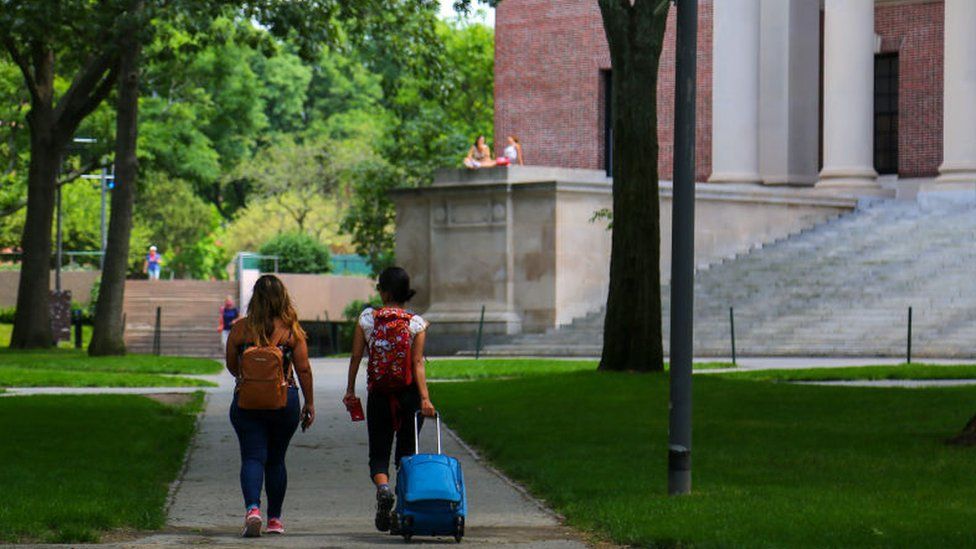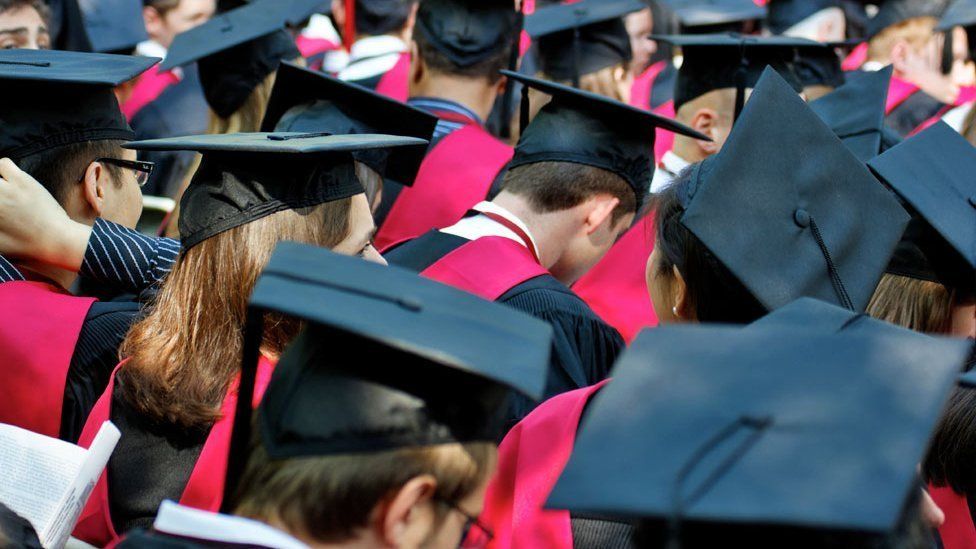US Supreme Court to weigh end to race-based college admissions
Опубликовано 2022-10-31 14:00 , обновлено 2022-10-31 14:24

The US Supreme Court is set to hear two cases that could dramatically alter the extent to which universities can consider an applicant's race during the admissions process.
The eventual ruling could end decades-old affirmative action policies and significantly affect how US universities manage admissions.
Arguments in both cases will begin at the Supreme Court on Monday.
Affirmative action is among the most contentious issues in US education.
The cases concern admissions at Harvard and the University of North Carolina. The court is hearing challenges to their admissions policies, which consider race among many factors when evaluating applications.
The policies are designed to boost the number of Black and Hispanic students, and are intended to ensure minority groups are fairly represented among university student bodies.
But the question to be weighed by the court is whether they are discriminatory and violate civil rights laws. Its eventual decision could radically impact the admissions plans of hundreds of institutions of higher education across the US.
The plaintiffs, a non-profit group called Students for Fair Admissions, accuse Harvard of discriminating against Asian American applicants in order to boost representation from other groups.
In the University of North Carolina case, the same group argues the college's use of race in its admissions process violates the US Constitution as well as federal civil rights laws that cover public universities.
The court's nine justices will hear oral arguments in both cases on Monday with decisions expected at the end of the court's current term in July 2023.
The Harvard case - Students for Fair Admissions v President and Fellows of Harvard College - has been working its way through the US court system since 2014, when the non-profit first sued the university.
Students for Fair Admissions is headed by a conservative activist Edward Blum, and opposes affirmative action policies.
The group is specifically asking the Supreme Court to overturn precedent in a landmark 2003 case, Grutter v Bollinger, which upheld affirmative action policies at a state university. That decision paved the way for universities to consider race as one of several factors in admitting students.
The court, which has a 6-3 conservative majority, is expected to be sympathetic to the group's challenges.
In legal filings, Harvard argues it uses race as a factor in admissions within the parameters of the law. It says its policy allows the university to build a more holistic educational experience for students.
Institutions like Harvard say they consider an applicant's race as one of several factors - including economic status and religious belief - in order to build classes that accurately represent the racial and ethnic diversity of the country.
"Americans have come to view diversity as integral to learning and to trust that the path to leadership is open to all," lawyers representing Harvard University wrote in a court filing.
Overruling precedent-setting cases on affirmative action, they said, "would undermine the public's faith in those foundational principles".
Opinion polls show varied attitudes towards affirmative action, often depending on how the question is framed.
A 2021 Gallup poll found that 62% of Americans were in favour of affirmative action programmes. A separate poll released by the Pew Research Center earlier this year, however, found that 74% of Americans - including a majority of black or Latino respondents - believed that race should not be factored into college admissions processes.
Proponents of affirmative action say that it helps rectify societal, economic, and historical inequities that prevent some minority groups from gaining access to the most elite educational institutions in the US.
But critics have long argued that considering race in university admissions is discriminatory, and that these policies come at the expense of other groups or individual students.
Nine US states - including California, Florida, Georgia and Michigan - currently prohibit the use of race as a factor in admissions for public universities.
-
Top court could end race-based US college entry
-
24 January
-

-
US condemns Harvard over 'racial bias'
-
30 August 2018
-

-
Asian Americans claim bias at Harvard
-
15 October 2018
Читайте также:
что, если решение о том, кто является президентом США затянется до срока вступления в должность? В этом случае в США – на определенное или неопределенное время – окажется два президента. Что-то вроде Авиньонского пленения пап, при котором одновременно правили два Главы Католической Церкви: один во Франции, другой в Риме!
гонщики демократов в предвыборной борьбе 2024 года отождествляют понятие «демократия» с названием своей партии.
Хавьер Казарес, чья дочь-ученица четвертого класса Жаклин Казарес была убита, сказал, что прибежал к школе и увидел, что снаружи собралась полиция, которая вовнутрь не входила. Он предложил другим собравшимся родителям вместе ворваться в здание: «Давайте поторопимся, потому что копы не делают ничего из того, что должны». Другие родители рассказали, что сотрудники полиции надели на них наручники, когда они активно требовали у полицейских принять меры.
Чepнокожий лейтенант Капитолийской полиции, застреливший 6 января безоружную Эшли Бэббит, до этого прославился среди своих товарищей по оружию тем, что в феврале 2019 года он забыл в клозете Капитолия свой табельный пистолет «Глок-22» 40-го калибра.
|
Оставлять комментарии могут только зарегистрированные пользователи. Войдите в систему используя свою учетную запись на сайте: |
||